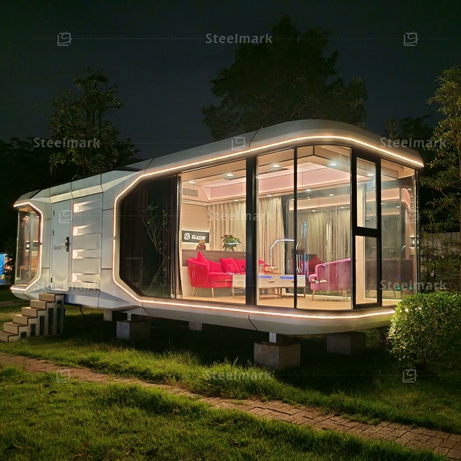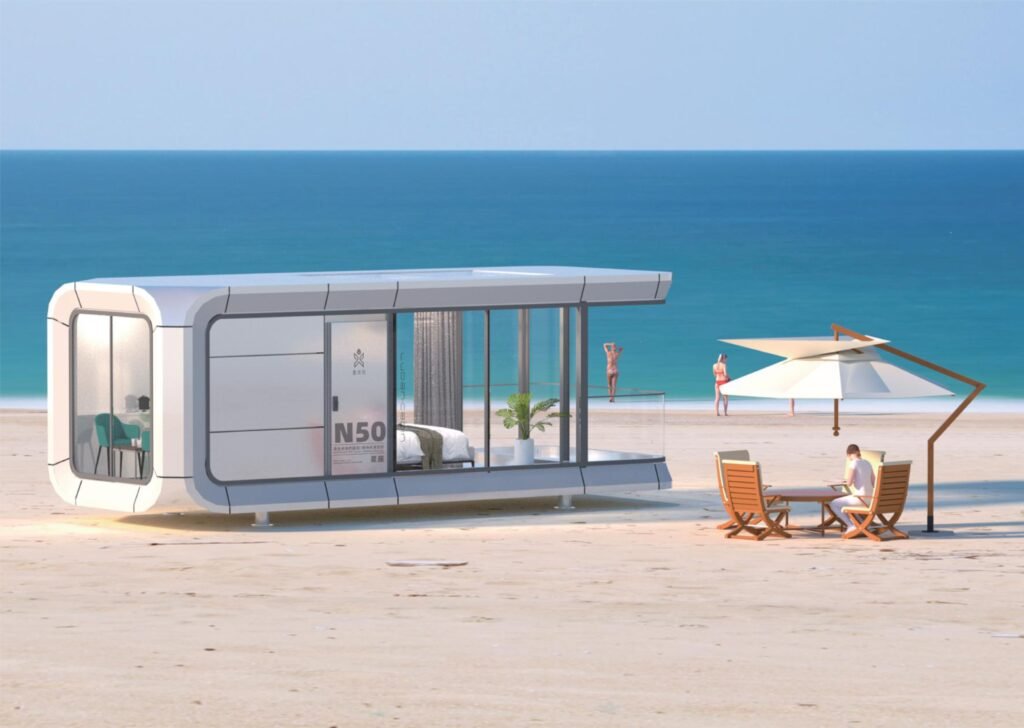Why Hohabitats Modular Home Is the Future of Sustainable Housing
Wiki Article
Why Modular Homes Are the Future of Lasting Living
Modular homes are progressively recognized as a crucial service for sustainable living, using a blend of performance, cost-effectiveness, and environmental advantages. Their construction in regulated environments dramatically minimizes waste and enhances precision, while the possibility for integrating innovative energy-efficient systems positions them as a forward-thinking choice in housing. Furthermore, the flexibility of modular designs enables for the assimilation of sustainable modern technologies and materials customized to individual requirements. As we browse the difficulties of urbanization and ecological sustainability, one must take into consideration how these homes might redefine our strategy to living spaces.Environmental Benefits of Modular Houses
The ecological benefits of modular homes stand for a considerable action towards lasting living. These homes are created in regulated manufacturing facility setups, which dramatically reduces waste generated throughout the structure procedure. By maximizing products and decreasing excess, modular construction adds to a more efficient use sources contrasted to typical structure techniques.Furthermore, modular homes are typically created with energy efficiency in mind. Many incorporate innovative insulation strategies, energy-efficient home windows, and sustainable materials, adding to reduced power usage. This can lead to reduced greenhouse gas emissions over the life-span of the home, boosting its general environmental profile.
The capacity to transportation and put together modular components on-site additionally minimizes the carbon footprint related to building and construction logistics. In addition, lots of modular homes are built to be versatile and quickly upgradeable, permitting property owners to implement lasting innovations, such as solar panels and energy-efficient heater, gradually.
Inevitably, the environmental advantages of modular homes not just promote lasting living yet also motivate an even more responsible technique to real estate development, lining up with international efforts to fight environment adjustment and preserve natural deposits for future generations.
Cost-Effectiveness and Price
Building a home typically stands for among the largest financial investments people make in their life time, and modular homes supply a compelling service for those seeking cost-effectiveness and price. Among the key advantages of modular homes is their lower building expenses contrasted to typical site-built homes. The structured production process permits significant cost savings on labor and materials, which equates to reduce costs for customers.In addition, modular homes commonly have much shorter construction timelines. This not only reduces expenses associated with financing and insurance but also mitigates the risks connected with inflation and varying market conditions. Many buyers find that modular homes can be customized to fit their budgets without sacrificing high quality or design.
Moreover, power effectiveness is often constructed right into the style of modular homes, causing minimized utility costs with time. Several producers prioritize lasting materials and practices, further enhancing the lasting monetary practicality of these homes. Overall, the mix of initial cost savings, quick building, and continuous power effectiveness makes modular homes an appealing option for those seeking to buy lasting living without breaking the financial institution.
Efficiency in Building And Construction
Modular homes not only offer economic benefits yet also master building and construction performance. The modular building process includes the synchronised building and construction of components in a manufacturing facility setting while website preparation occurs simultaneously. This identical technique substantially decreases the total timeline from fertilization to completion, typically cutting construction time by as much as half contrasted to standard methods.Moreover, factory-controlled atmospheres improve high quality guarantee. By making use of precision manufacturing strategies, modular homes are built to precise requirements, lessening waste and mistakes. This uniformity not just brings about a higher top quality product yet likewise adds to lasting practices by decreasing material waste throughout building.
In addition, the usage of modern-day technology and automation in the production procedure enables quicker assembly and decreased labor expenses. As soon as the components are transferred to the site, they can be efficiently put together, better quickening the timeline. This structured process is not only beneficial for builders however additionally decreases interruptions to the surrounding setting during building.
Customization and Layout Versatility
An excellent range of customization choices identifies modular homes, permitting house owners to customize their living areas to satisfy particular needs and choices. This style flexibility is a hallmark of modular building, allowing customers to choose everything from layout and area designs to components and surfaces. Unlike typical homes, modular designs facilitate a collaborative technique where designers and building contractors work very closely with property owners, making sure that each aspect aligns with individual lifestyles and aesthetic wishes.Additionally, modular homes can be conveniently reconfigured or increased, accommodating altering family characteristics or advancing personal tastes. This adaptability not just improves the home's capability yet additionally adds to lasting sustainability, as house owners can change their rooms rather than look for brand-new housing services.

Future Trends in Sustainable Real Estate
Arising fads in lasting housing are improving the landscape of domestic building, stressing environment-friendly practices and cutting-edge technologies. One significant fad is the integration of wise home technology, which improves power performance with automated systems that check and enhance energy consumption. This not only decreases utility expenses however also contributes to a lower carbon impact.Additionally, the usage of sustainable materials is coming to be significantly usual. Contractors are opting for recycled, in your area sourced, or quickly eco-friendly materials, which reduce ecological effect and support regional economic situations. Modular homes are gaining popularity for their lowered waste during building and their adaptability to various terrains and climates.
Another fad is the pod studio incorporation of environment-friendly roofs and living walls, which enhance air top quality and supply natural insulation. These attributes likewise advertise biodiversity in urban areas.
Conclusion
Finally, modular homes become an essential remedy for sustainable living, offering substantial ecological benefits via lowered waste and energy effectiveness. Their cost-effectiveness and affordability attend to the growing housing demands in metropolitan locations, while reliable building and construction procedures improve general productivity. The integral modification and design adaptability deal with diverse choices and requirements. As fads in sustainable real estate progress, modular homes are poised to play a critical duty in advertising green living techniques for future generations.Structure a home often stands for one of the biggest economic investments people make in their lifetime, and modular homes provide an engaging solution for those seeking cost-effectiveness and affordability. One of the main benefits of modular homes is their lower construction expenses compared to standard site-built homes. On the whole, the combination of initial expense savings, quick building and construction, and continuous power effectiveness makes modular homes an attractive option for those looking to invest in sustainable living without breaking the financial institution.
Eventually, the modification and design flexibility supplied by modular homes make sure that they are not just frameworks, however personalized havens that reflect the distinct identifications of their passengers while advertising lasting living techniques.

Report this wiki page